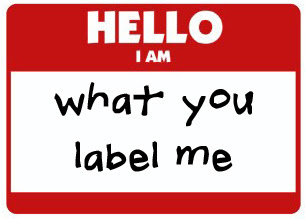“Feelings are
much like waves.
We can't stop them from coming, but we can
choose which ones to surf.”
Every so often, we wake up in the morning in a cranky mood. Right from the
beginning, we assume that today will be a bad day. But does it really have to
be that way? Are our emotions in control of us, or are we in control of them?
The answer is that we control our emotions.
Imagine this. Someone says something rude to you. Instantly you feel your face
getting hot as anger overwhelms you. So obviously, this person made you mad.
Right?
Wrong.
You made yourself mad.
Stop and pause for a minute.
Someone saying something rude to you was the activating event. You getting angry was
the consequence. It's easy to think the
consequence is the direct result of the event.
But there is something in between, and that is the belief. You thought something to
yourself that actually made you angry. Likely, you told yourself, "This
person has no right to insult me!" or "That was so rude! How dare
they say that!"
According to psychologist Albert Ellis, our emotions follow an "ABC"
model.
Whenever presented with any unpleasant feelings, Ellis claims that we should
ask ourselves, "What
am I thinking to make me feel this way?"
The self-defeating and unreasonable beliefs we have may surprise us.
The self-defeating and unreasonable beliefs we have may surprise us.
We convince ourselves that things should be done a certain
way, and if they're not, then it's a disaster. Examples of some irrational
beliefs according to Ellis are the following:
- "You absolutely must have love and
approval from virtually all the people who are important to you."
- "You must be completely competent in all
your activities in order to feel worthwhile."
- "People must treat each other fairly,
and it's horrible when they don't."
- "It's awful and terrible when there is no clear or quick solution to life's problems."
Our
irrational beliefs lead us to feel negative emotions. We only experience
negative emotions because we allow ourselves to.
Many times, we accept these negative emotions. We justify them rather than
challenging them. If we wake up in a bad mood, we try to find a reason for that
bad mood rather than replacing the negativity with positive thoughts. Even if
there is nothing wrong, we like to come up with some reason to be in a bad
mood.
Thus,
negative consequences occur. Distorted thinking is the cause of emotional
problems. Cognitive therapy is based on the seemingly simple idea that we need
to change our unrealistic beliefs to more rational ones.
No one is confined to a negative mindset.
What a sad world it would be if we had no control over our feelings. Any
situation would have the right to make us happy, sad, angry, jealous, nervous,
stressed, and so on.
Luckily,
we don't live in a world like that.
It's about time we take advantage of what we can control. People like to have
power, yet they let others decide what they feel.
Changing these irrational thoughts is the solution to negative
feelings. It is up to us to challenge and correct our faulty patterns of
thinking.
Using the "ABC" model helps us understand that we are liable for our
own emotions.
People can do behaviors that are irritating, but we don't have to get mad. They
have done their action, but your reaction is entirely up to you.
No one else has an on and off switch to your emotions.
It's
not like someone can simply turn the switch on, and voilà, you're mad. Nor can someone
turn it off and suddenly you're no longer mad.
You have the switch to your own emotions.
You can turn off the switch to anger when you don't want to be angry. You can
turn on the switch to happiness when you want to be happy.
Understanding your feelings is the first step to controlling them and choosing which ones to surf.
Understanding your feelings is the first step to controlling them and choosing which ones to surf.
Happiness is a choice. Choose wisely!
*****
Check
out this article for more: "Total
Control vs. No Control Theory of Emotions: Can you control your emotions or
not?"


